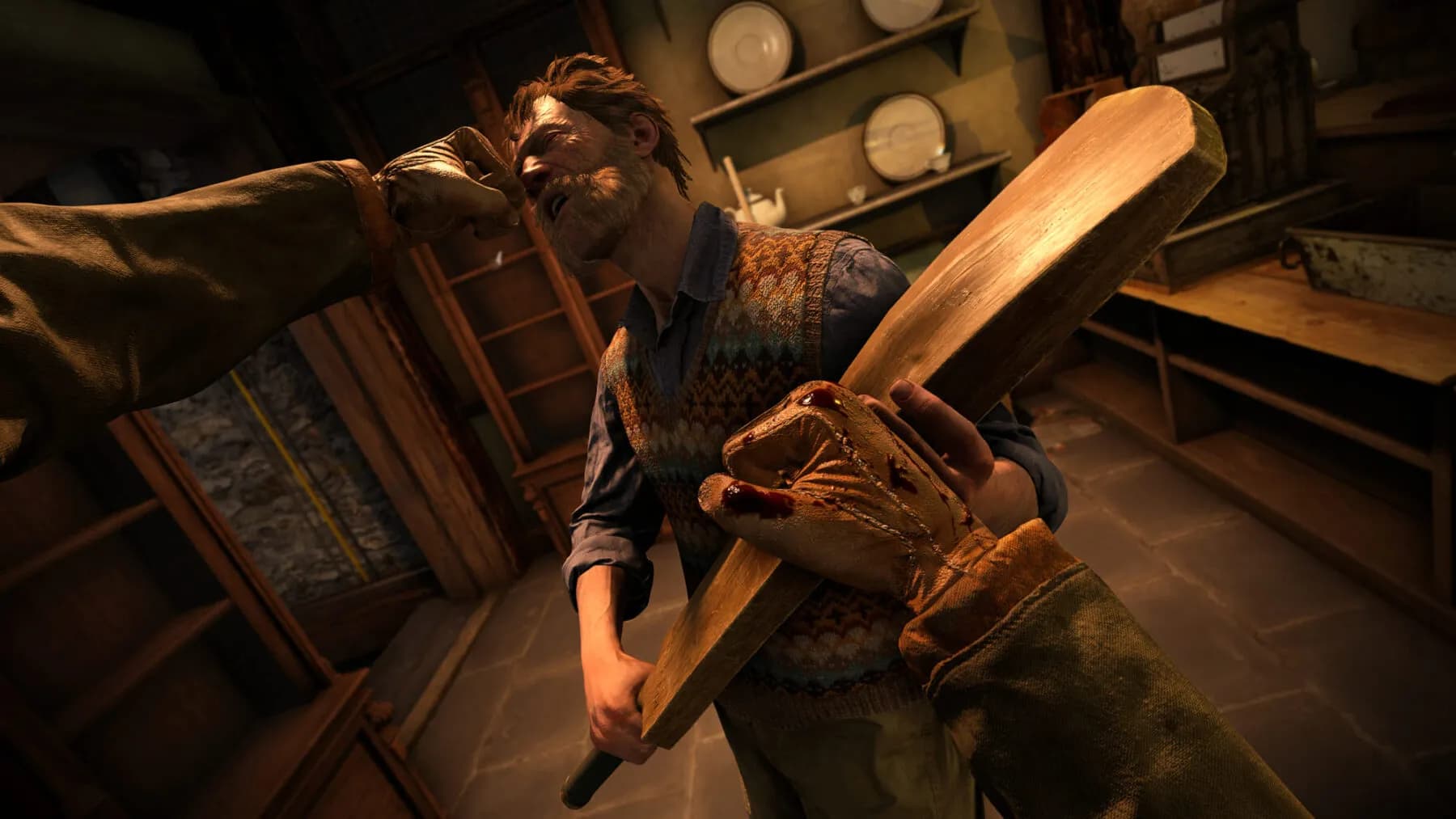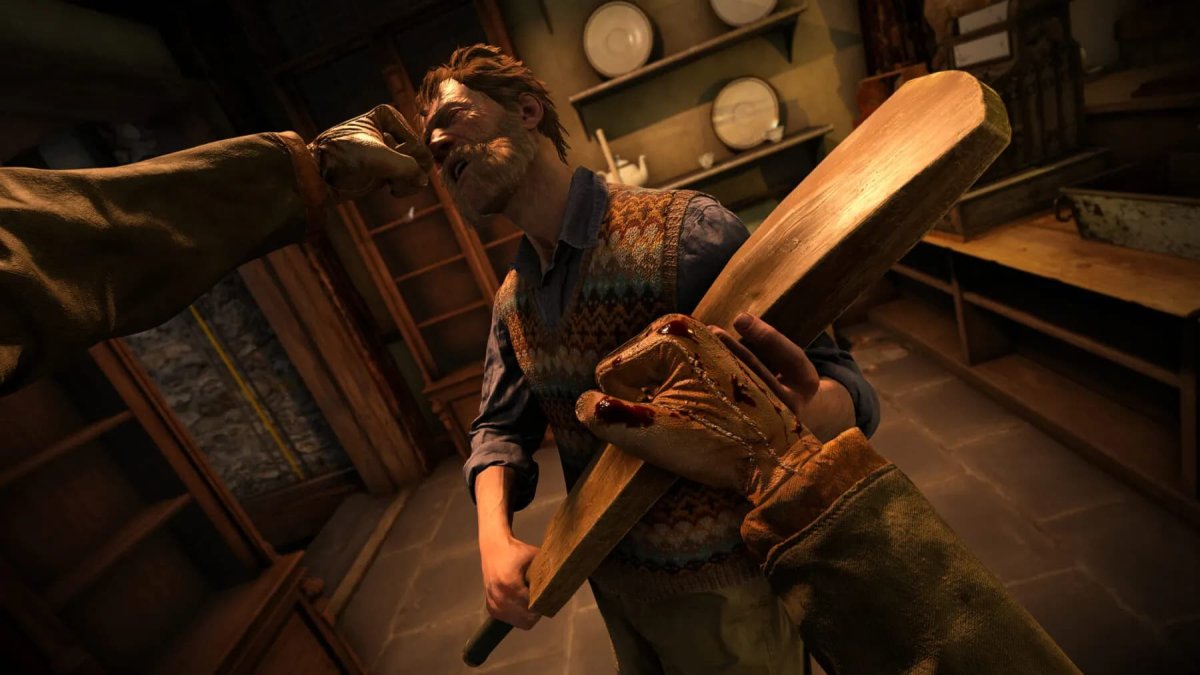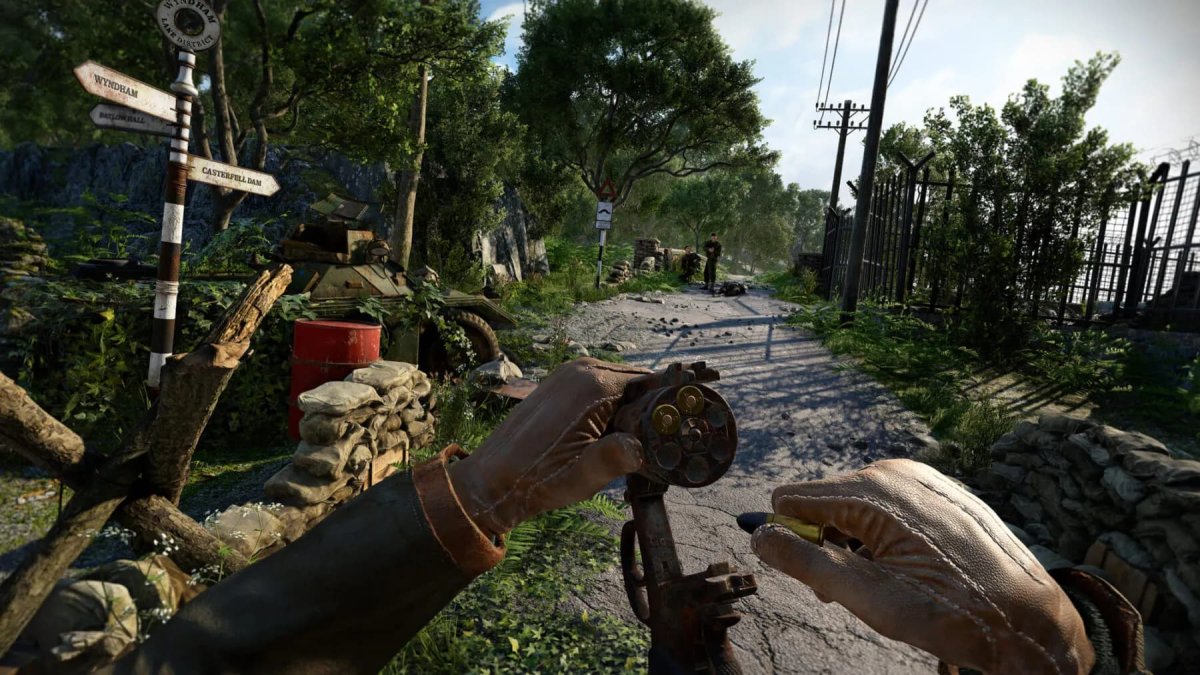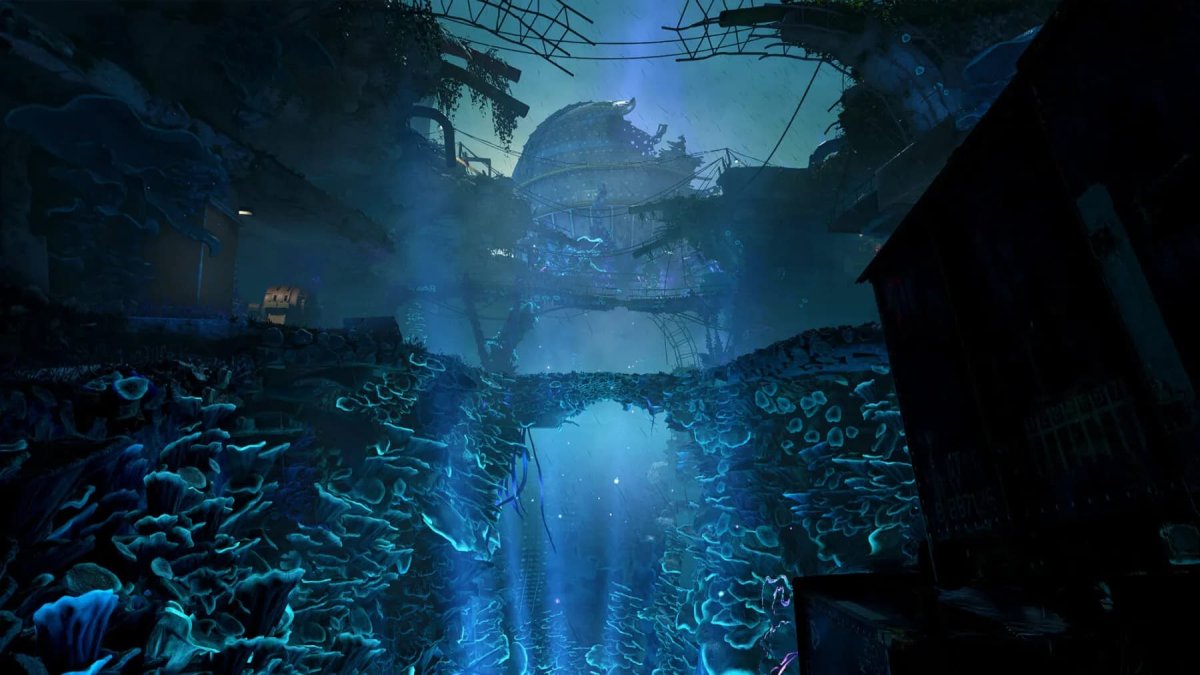
Entertainment gossip and news from Newsweek’s network of contributors
When I woke up in Atomfall’s Wyndham, I had no memory, no knowledge, and very few resources. I awoke to a harsh world filled with outlaws and bandits, and with little more than a cricket bat and a phone call with a mysterious, disembodied voice, had to find my way to safety, discover the secrets of this world, and find a way to escape.
All I knew, at first, was that I had to find The Interchange, a mysterious facility where something serious went down. So I set out, taking down outlaws, looting their corpses, and seeking out people who could point me in the right direction. I met a lot of people, and a shocking amount of them met a grisly fate — primarily at my hands after I’d helped them with an errand.

Rebellion
Atomfall is a survival adventure game that, on its face, is about choices. You meet a lot of people with varying motivations, and they’ll often ask you to do something for them. How you go about completing their tasks can vary massively, as can the outcomes of the quest once you turn it in. And at the end of it, if you didn’t get exactly what you wanted from them, you can always walk behind them and snap their necks before looting their pockets for the resources to start or complete another person’s quest.
The choices you make, then, are largely just a front. For most of the game’s runtime, they don’t matter at all, because you can just pick whichever choice is easiest and kill the NPCs involved to get most of the way to the other outcomes. Partway through the game, for example, I came across a confused old lady who asked me to speak to her butler halfway across the map before she’d give me a key to her conservatory. I checked my map to see where that was, saw that it was quite far away, and instead decided to just kill the old lady and take the key from her dead body. I’m glad I did, too, because the rewards inside the conservatory weren’t really worth the trek.

Rebellion
Most importantly, there were no consequences – at least as far as I can tell – for killing her, or most NPCs in the game. Up until that moment, I had been careful and deliberate with my decisions, trying my best to get the best outcome and making the most of whatever I ended up with. From that point onwards, though, I simply didn’t care, I killed whoever got in my way without a second thought, and I had an absolute blast doing so.
It was this middle part of the game that I enjoyed the most, once the shackles had been cast off and I realised it was less of a game about choices and more of a sandbox to make my own fun in. I had a decent arsenal of weapons and resources, which let me walk into just about any area and take down a small army if needed. Combat is fun enough – melee combat is rough but serviceable, and the gunplay is decent – and the world is filled with things to do, places to go, and people to meet (and ultimately kill).
In a game where you can do just about anything without much in the way of consequences, there’s a surprising amount of coherence and fluidity in how it handles its quests. I was surprised to see how few of my actions locked me out of quests altogether, with most quests having half a dozen different ways to progress. Even killing everyone involved in a questline doesn’t necessarily end it, and you can often still reap the rewards if you can figure out what they would have said and where they would have sent you.
The order in which you progress through the world is almost endlessly variable, too. I was six hours into the game when I picked up an important key item, while one of my colleagues had the same item within an hour — but neither of us were lacking in things to do before and after getting it. The quests we did were different, or when they were the same they were completed differently, and the game was fully accommodating of our wildly disparate playstyles and progression through the game. It’s honestly impressive, because most games would buckle under the weight of near-infinite progression options, but Atomfall handles all of them like it’s no big deal.
It is a bit strange, though, how many of the game’s mechanics just don’t matter in the slightest. Stealth takedowns are effectively useless (when you’re not snapping friendly NPC necks), because once you pick up a bow you can silently pick off enemies from a distance. The choices, as mentioned before, don’t really amount to much, either. And there’s supposed to be an inventory management mechanic that is easily ignored, too. Sure, for 90% of my runtime, my backpack was entirely filled with random garbage I’d picked up, but it never stopped me from completing a quest or progressing through the world and story. Instead, when I needed to pick up something important, I just opened up my bag and ate a loaf of bread to free up space.

Rebellion
At the end of the game, when I’d made my final choice – one that actually matters, too – and saw the credits roll, I was left with a dilemma. Very little of the mystery at the core of Atomfall’s story was solved in my playthrough, and while I could go back for another playthrough to see the other half dozen endings, I’m not sure I really care to.
After 10 hours in Atomfall’s facsimile of mid-century Britain, I can say with certainty that I enjoyed myself. But is it enough to play through it all again? Not really. It was the video game equivalent of watching a B movie with your friends at the cinema — I had a nice time while it was happening, but in a couple years I’ll probably forget it even happened. That’s not necessarily a bad thing, though. If anything, I want to see more games like this, small palate cleansers that aren’t particularly memorable but are enjoyable in the moment.





